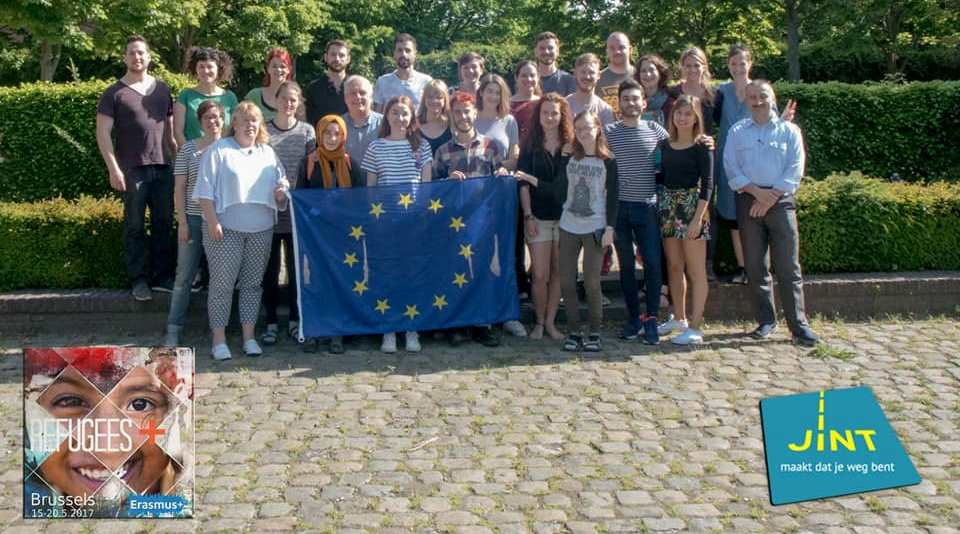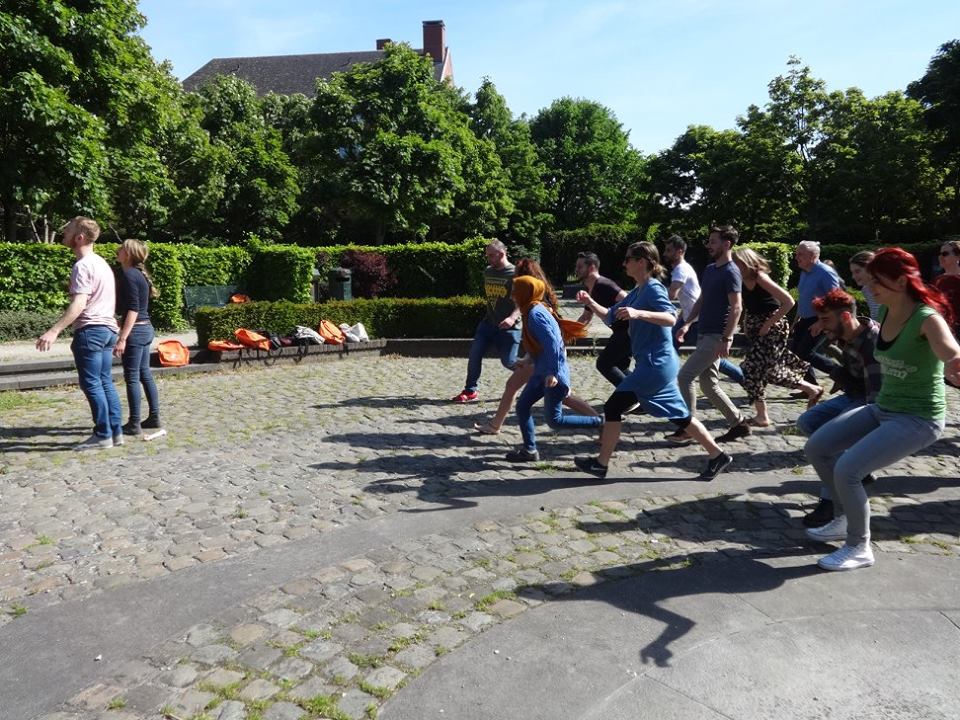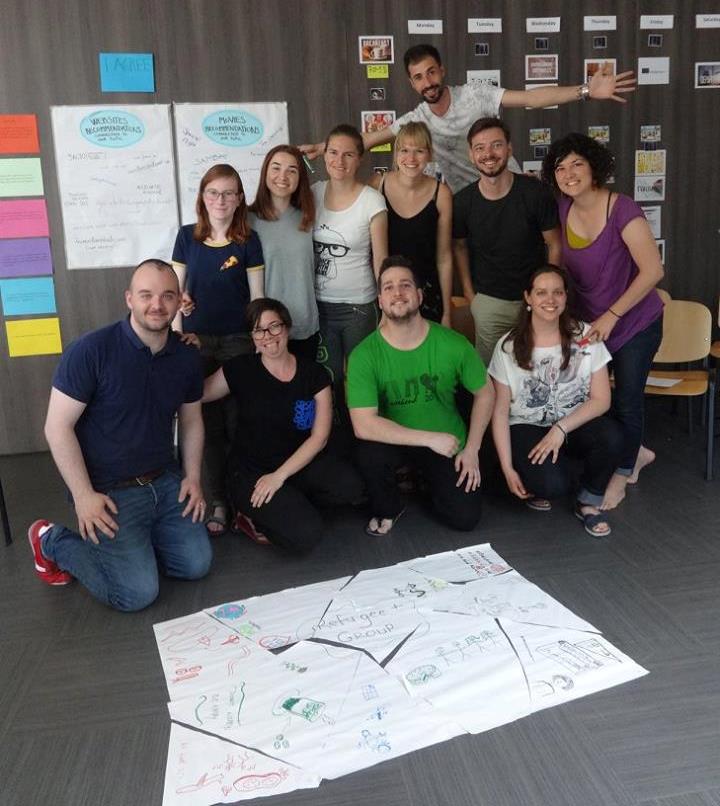Refugees+: Helping Young People with the Resettlement Journey
Since the start of the refugee crisis more than one million refugees have come to Europe, many of them young people between 13 and 30. European Youth workers are looking for different ways and approaches to deal with the situation, among them Aidan Farrelly from Kildare Youth Services. Aidan recently took part in the Refugees+ Youth Training Course in Belgium, one of a number of Youth training courses offered through the Salto training network.
The Scene
Tightly squeezed to the window seat of an early Ryanair flight to Brussels, overpriced coffee in one hand and the unnecessary daily newspaper wedged under the other, I’m contemplating what lies ahead. It’s still dark outside, my neighbour skipped brushing their teeth and I’m starved of any real leg room. Bon voyage!
I’m a Senior Youth Worker in Kildare Youth Services, a member organisation of Youth Work Ireland. We receive the bulk of our funding through the Department of Children and Youth Affairs and provide a range of fun, creative and education-based youth work activities with children and young people in the Kildare Town area.
Since October 2016, we have also been working with young people from Syria who are living in the Emergency Reception and Orientation Centre in Monasterevin. Our aim is to implement a youth work approach to support young people to learn about Ireland and its traditions, and also to reassure young people that their skills, traditions and values are respected within their resettlement community.
I signed up to participate in Refugees+ for two reasons. The first was to gain more information and knowledge, practical skills and ‘know-how’ on supporting the integration of young people into communities in Ireland. I also felt obliged to attend so that I could better advocate for those young people we’ve worked with in recent months: to voice on their behalf the opinions and experiences of living the resettlement journey.
The Course
With Refugees+ being a youth work course, many of the sessions were based on participative, reflective and often fun activities. This was non-formal education by definition! Throughout the week we were asked to talk about and present our national realities when it came to youth work with refugee young people: is the work funded, what type of activities take place, what are the challenges?
We were also given the opportunity to travel throughout Brussels, and visit different organisations that are responding to the needs of refugee young people in their own ways. This could be through food, art, music, drama, or other approaches. It was fascinating to experience this through the lens of "Would this work in Ireland, in Kildare, in my project?".
Midway through the course we were given an option to facilitate a session of activities we would use in a group. I took the chance to run a few different activities that I found extremely useful with the young people we work with. Speaking as a participant, this was a crucial element of the course as I’ve taken many other activities back to my job.
We also watched the film The Crossing, which is a first-hand account of the perilous journey made by a group of Syrian refugees. We met with inspirational filmmaker Angela Al Souliman who documented the events.
The course ended with time allowed for youth workers to develop project ideas, exchange links and form international relationships with fellow youth workers. Five of us are currently working on an Erasmus+ application for a project to support young people to become advocates for refugee young people in their communities. There’s a long way to go in developing the proposal, but it’s an exciting start.
Get a flavour of Refugees+ in this video and look out for Aidan at the four and a half minute mark!
The People
Despite not knowing anyone on Monday, I had developed some excellent relationships with people by Friday. Six days together will do that! At times the routine was a bit hectic: most days the sessions would run from 9.30am–5.30pm with a two hour siesta during the day (much needed). Then you would have dinner before an optional evening activity.
A massive learning for me from the outset was the different meaning ‘Youth Work’ has for different people. This was certainly an eye opener. People in Germany or the Netherlands or Slovakia all vary in what they consider youth work to be, and it’s great to talk to people about it.
We had lots of fun together. It was evident that while we all prepared for the course, we couldn’t have truly readied ourselves for what was in store. It’s a topic that stirs emotions in many people, and as a group one could see a great sense of motivation and inspiration coming from our time together.
The Learning
I arrived home tired. Physically. It was a busy week. But as tired as I was, I was more energised and motivated to do my job than ever before. But now, I also had more tools, information and confidence at my disposal.
I would urge any Youth worker to look through the training opportunities on Salto or the Léargas Training Opportunities page and think about applying. There are many levels to the learning, whether it’s directly from the course or from the opportunity to meet fellow youth workers from different communities, countries and continents.
This ultimately can only help us develop as professionals, and thus benefit the young people we work with. Thank you to the fantastic trainers Pepijn, Teresa, Osman and Jana, and to Léargas for such a wonderful opportunity!
Images courtesy of Aidan Farrelly. We welcome contributions to 'Insights' at comms@leargas.ie.



